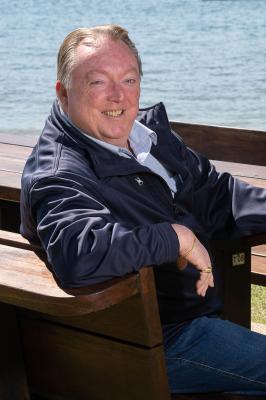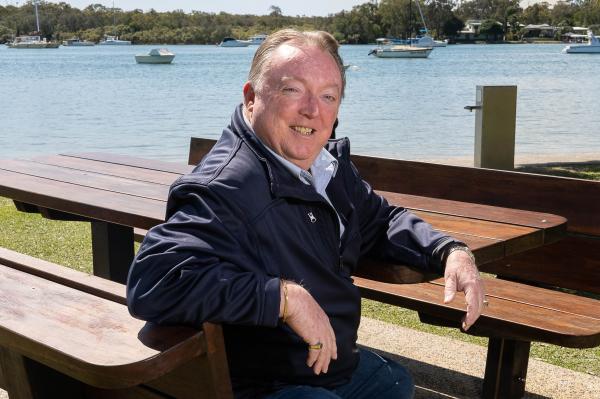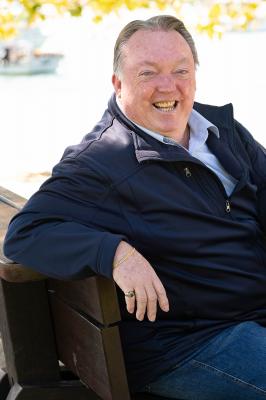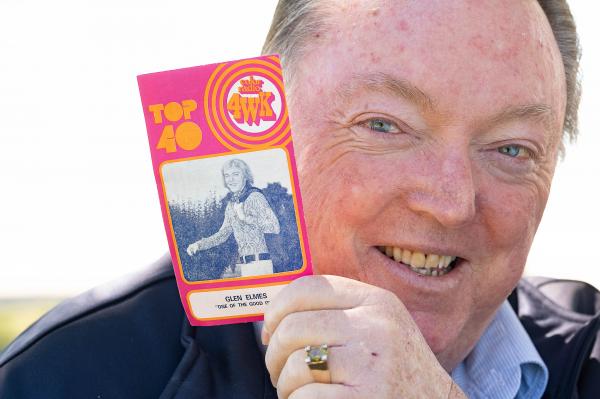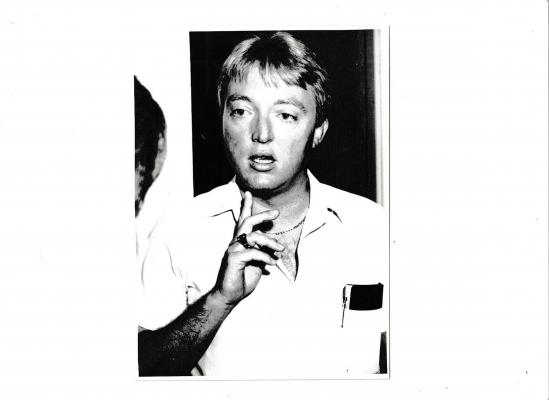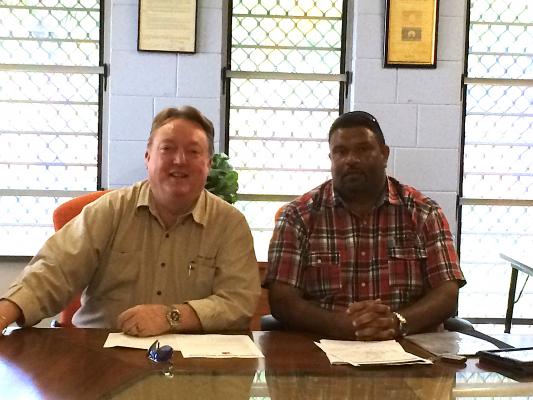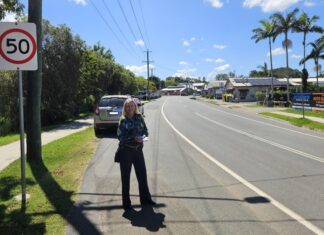Former State MP for Noosa and Minister for Aboriginal, Torres Strait Islanders and Multicultural Affairs Glen Elmes has been part of the political landscape for so long that it’s easy to forget about his long and illustrious career in regional media – one that almost ended when he was held at gunpoint during a three-hour siege at the Nambour studio of Radio 4SS in 1986. Now running Strategic Pathways Consulting, with a string of local business clients and pro bono work on behalf of Katie Rose Hospice, the man who some say sacrificed his political career over the de-amalgamation campaign, has been under a self-imposed cone of silence on political matters since his defeat in 2017, but he agreed to sit in the Noosa Today Hotseat with Phil Jarratt.
Can you walk us through your 30-odd years in radio?
35 actually, starting at 4IP, Brisbane’s leading radio station at the time. Everyone who worked there had a title and mine was “director of telecommunications and postal services”. I was the office boy. One of the owners, Sir Frank Moore, everyone called him FT, took me under his wing and became one of my great mentors. I’d wait for him at the lift every morning and wave my tape at him. “FT, FT, you have to listen to this!” I’d drag him into a studio and make him listen to my “air check” as we called our announcing test tapes. He’d tell me to keep up the good work but I’d never get on air.
Then one day I was summoned to his office on a Thursday afternoon and I was told that I’d start work at Mount Isa on Monday morning, under these conditions: I’d go to church every Sunday, I’d board with a local family, and the station manager would hold my bank book. I started on air doing the drive shift at four on Monday afternoon, aged 16 ½.
As well as being on air every day, the announcers had to liaise with advertisers, meeting them and working on copy ideas for their ads, getting to know their businesses. I loved that interaction, and I realized very early in my radio career that I was not John Laws, so I’d better be good at the other stuff. They sent me next to 4WK in Warwick where I started to transition from announcing into sales. But the town hated us after the station largely moved to Toowoomba, and I couldn’t give an ad away, so at 18 or so I became a joiner, joining Rotary and every committee that would have me. I’d already joined the Liberal Party when I was in Mount Isa.
The joining paid off and eventually we had to put another sales rep on and I became the sales manager for the Southern Downs region, the first of many managerial jobs in radio, including four memorable years in Emerald, where we opened a new station and I met my wife, Lesleigh. We were married in 1985 and at the end of the year we moved to the Sunshine Coast where I became manager of 4SS, then 4GY in Gympie, which had operations in Noosa as well, and that became my focus. We had the opportunity to get an FM license so we started Heat FM, which is now Zinc.
Which was when our paths first crossed, and I seem to recall you were already politically active.
Yes, I was, but mostly behind the scenes. Then in 2004 I decided to follow my dreams and ran as the Liberal candidate for Noosa and got done by Labor’s Cate Molloy. So, was that it? The end of my political career before it really started? I couldn’t walk away, so I started a three-year campaign and won the seat in 2006.
The previous Member for Noosa from your side of politics, Bruce Davidson, went on to become a minister …
I was the bloke who talked him into running, and it took quite a while to get him out of the tackle shop! From the time I arrived on the Sunshine Coast I’d done a lot of work for the party, becoming chairman of the local branch, then moving on to the State executive, over a long period, so I’d laid the groundwork in helping get quite a few people preselected and elected, including Davo, who hadn’t previously been a member of a political party. He was a good fit for the electorate, bit of a larrikin, a bloke who crossed over the whole community.
Getting back to your ministerial ambitions, did you have a strategy?
(Laughs) There wasn’t time to form a strategy. I won the seat in September 2006 and in March 2007 (Premier Peter) Beattie decided he was going to amalgamate councils. I was still getting lost trying to find my way around Parliament House when this enormous issue was thrust on us, and I was absolutely opposed to it. There were some councils where it worked but it didn’t fit Noosa. My colleagues in the Parliament, including opposition leader Jeff Seeney, were behind me all the way, so we started organizing against it. In Noosa we had the Friends of Noosa group who raised a lot of money, and the Noosa Parks Association. We organized protests in Brisbane and leaflet campaigns and so on. Then, when John-Paul Langbroek became opposition leader I got him to commit to supporting Noosa as a special case, but when Campbell Newman was brought in as a captain’s pick in 2011, he said all policies were null and void. I knew if I couldn’t convince him to support Noosa, my chances of retaining the seat were gone. Newman came to my office in Noosa and met the key players in the de-amalgamation movement, including Noel Playford, who did such great work in proving the case. In the end, he cut back our idea for a Greater Noosa Shire, but supported keeping the existing shire. So what we took to the election was that Noosa would be allowed to vote to determine its future as a shire, and we won government. And then we won the referendum for de-amalgamation, and credit for that goes not only to the lobby groups who fought for it, but to the people of Noosa, who don’t take to the streets and protest, but this time they did.
A source very close to all of this told me, “One of the unsung heroes of de-amalgamation is Glen Elmes who basically sacrificed his political career for it.” How do you respond to that?
There was some collateral damage, that’s all I’ll say.
There’s a history in Noosa of having to cross political lines for the good of the community, is there not?
In my time in Parliament I’d look across the benches and see people on both sides swearing to crush the others in a very personal way. If you operate that way, when you need something for a particular electorate, it might be hard to get an appointment. You can argue and make your point strongly on the floor of the Parliament, but that’s just theatre. The real work is done elsewhere.
Does what you’re saying make Noosa more naturally an independent seat?
Well, we’re at the point of the electoral cycle, with an election closing in, where the independents and the minor parties are talking up the likelihood of a hung parliament, which is very rare but what they need to have any voice. An electorate does really well when it’s represented by someone whose party is in government. That’s the fact of the matter, particularly now, where the state is even more broke than it was before Covid, and there’s not a lot of money to hand around.
I’ve spent the last three years since I lost the seat not commenting on what my successor has done, and I made that promise to myself because it would be read as sour grapes, or positioning for another run, which I’m not. I’ve written many letters to the editor and deleted before sending. After November 1, I may voice my opinions, but it will be Glen Elmes speaking as an individual, not a politician.
Can we discuss your term as Minister for Aboriginal Affairs, as it was then?
Yes, a very enjoyable period and I met some wonderful people in charge of the remote Aboriginal local councils.
Have you followed the progress of the Kabi Kabi Native Title?
I don’t think there has been a lot of progress. We tend to get hung up on side issues when the most important part of the debate is that kids aren’t going to school, women are being raped, gambling is out of control, there is no future for them. This is what we have to concentrate on. It’s a shame on all of us because we aren’t doing that.
How would you face an election in the time of Covid?
We’re likely to have two elections in one – one would be in South East Queensland where restrictions have taken a toll, and one for the rest of Queensland where they largely haven’t. The leadership is important, and I’ll go back to Anna Bligh, who was thought to have done a great job during the floods, but it didn’t help Labor at the election. You might draw the same conclusion about the leadership under Covid. And of course, electioneering has to be done in a completely different way which favours people of profile.
But how would Glen Elmes stand for re-election?
(Laughs) You’re asking me to delve into areas I said I wouldn’t. Look, at some point you have to live off your reputation. You have to be seen to have delivered for your electorate, but getting that message across is much more difficult now. The media has been stripped right back, the costs of direct campaigns have gone through the roof, and you can’t stand on street corners or turn up at the market.
As a politician, what’s the thing you’re most proud of?
That I can still walk through a supermarket doing the shopping and hold my head up. And the fact that I’ve maintained friendships with so many of the people of all walks of life I met through politics.

